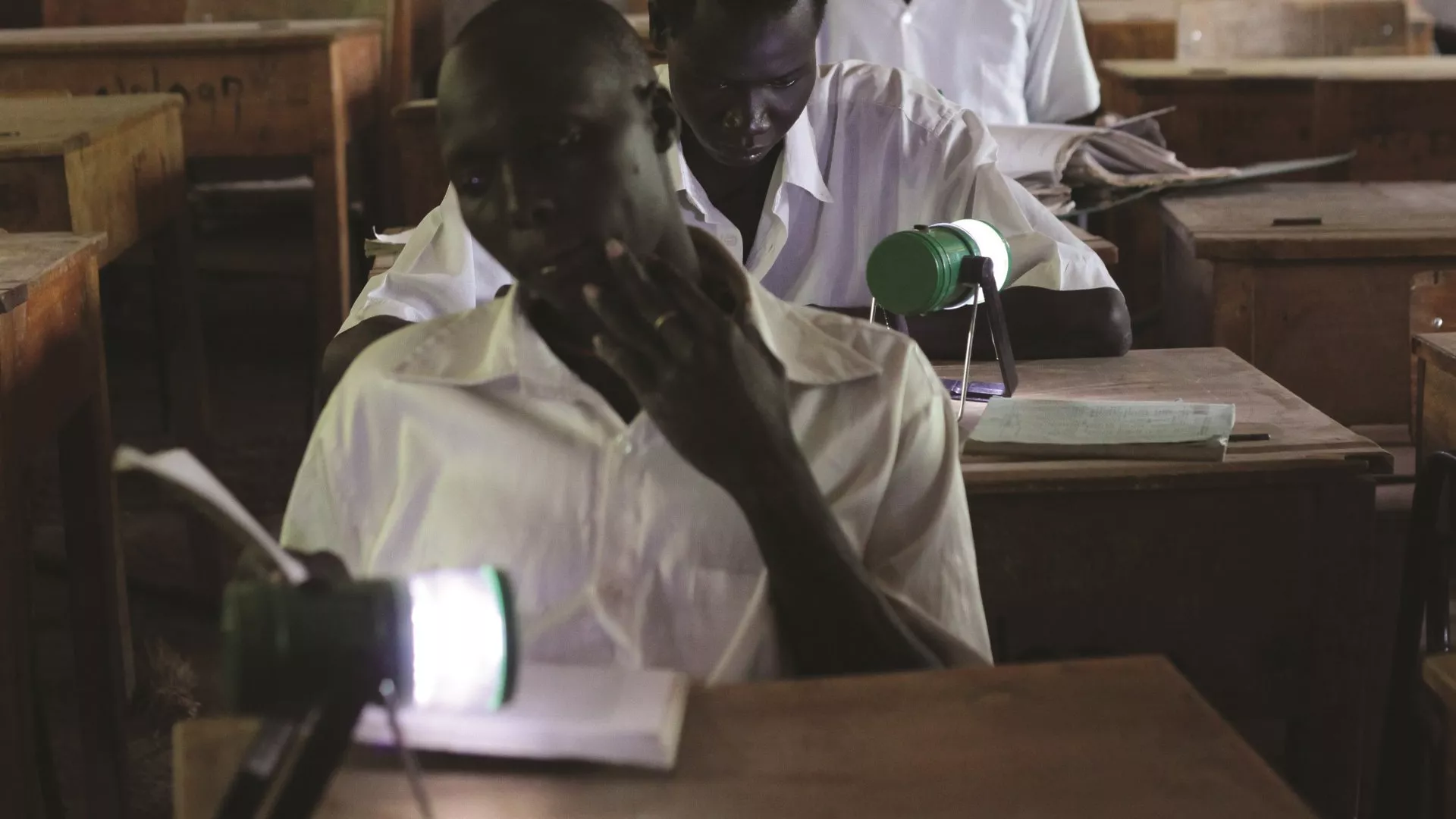
Kenya: Kakuma refugee camp
EDP together with the United Nations High Commissioner for Refugees (UNHCR) established a partnership to bring renewable energy and sustainable environmental solutions to the Kakuma Refugee Camp in Kenya, which being in a remote area is not served by the national power grid.
It is an unprecedented worldwide project, which was presented at the 5th Annual Conference of the Clinton Global Initiative held in New York in September 2009. EDP aims in this way to contribute to the improvement of refugees' living conditions by attempting to boost sustainable development for the different communities in the countryside, empowering the beneficiaries, and covering their basic energy needs. It's a simple idea which has revolutionized the lives of 6000 people directly and more than 70,000 people indirectly.
The installation of around 47 kW in solar energy photovoltaic systems and more than 1500 low-consumption lamps in 10 institutions: two hospitals, four schools and four other buildings. The metal structures were built locally, as were the equipment rooms that house the electrical equipment. A 3 kW wind tower was installed in the ACNUR complex.
These measures allow fuel savings of approximately 50,000 liters per year and a reduction in CO2 emissions of about 120 tonnes per year; the number of blackouts were also reduced, and the efficiency of health care and services provided to communities were increased; safety lighting was improved; and better education was promoted.
The installation of 31 solar public lighting posts in the refugee camp and the local community village, 21 of which were built locally by the refugees themselves, allowing a reduction of insecurity felt at night, particularly by women, and further contributing to decreasing the consumption of kerosene lamp fuel and reducing CO2 emissions by approximately 20 tonnes per year.
4500 rechargeable solar flashlights were distributed to students through a program coordinated by LWF (Lutheran World Federation) and established in partnership with 15 schools, their respective principals and educational caregivers.
These flashlights can only be recharged in schools, which ensures the attendance of students benefiting from this lighting project. This initiative aims to improve educational performance by allowing night study, as well as reducing absenteeism and dropout rates among children and adolescents, especially young girls who typically accompany mothers in the collection of firewood and water and who are more vulnerable to aggression in low-lighting environments, with the project thus contributing to increased safety on the way home from school.
30 high-quality solar cookers were provided to 10 restaurants employing vulnerable women supported by the National Council of Churches of Kenya to reduce firewood consumption while promoting environmental sustainability and limiting CO2 emissions. 30 women were trained in solar cooking.
These cookers reduce the number of accidents caused by fire and other health risks. Additionally, since the cookers do not require constant supervision, women can devote time to other activities while cooking.
To reduce the risk of diseases associated with water contamination and to minimize the consumption of firewood, water purifiers were distributed to 20 families from the local community - Turkana people - who now have access to good quality drinking water.
Three wells equipped with solar pump systems were dug with the objective of supplying the local community. About two hundred people living inside the Kakuma camp now have access to water for garden irrigation and reforestation.
The cultivation of vegetables and fruit carried out by the different communities in the area enables not only the production of more nutritious food for own consumption, but also provides some income from the sale of surplus products.
All activities were complemented by technical training sessions imparted to around 100 refugees, who attended these enthusiastically and participated in the implementation of the different initiatives.
The Don Bosco Vocational Training school and its students participated in the manufacturing and installation of the systems and currently guarantees their maintenance and repair work.